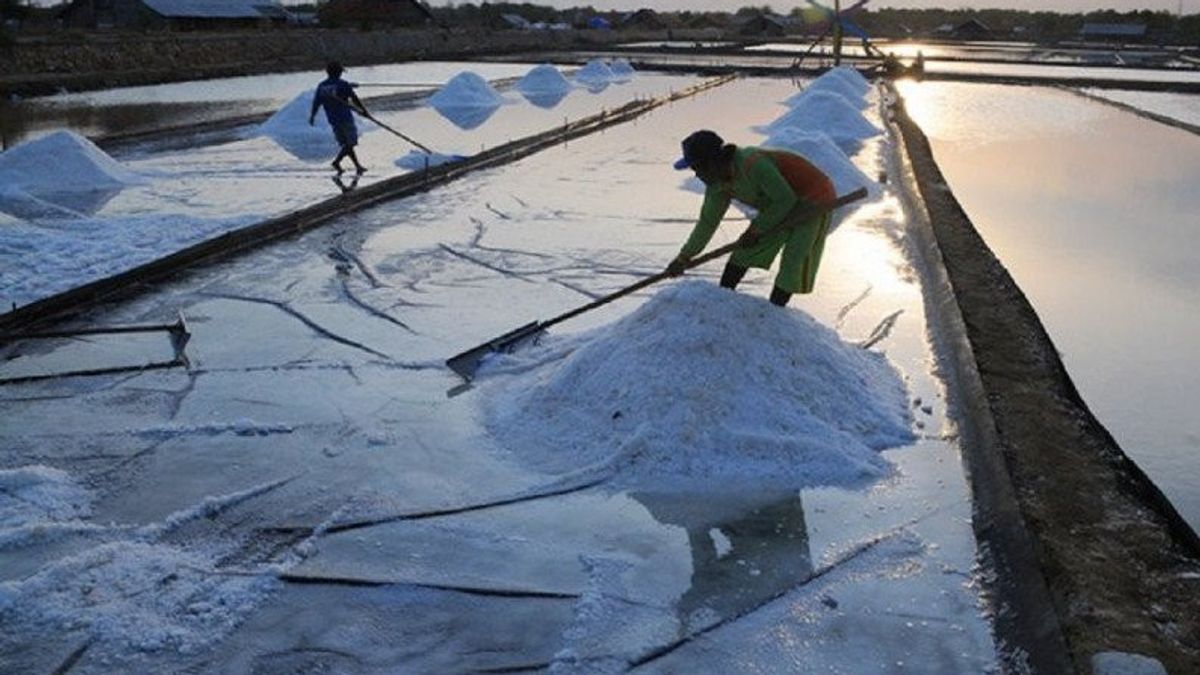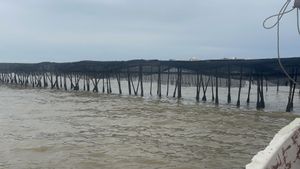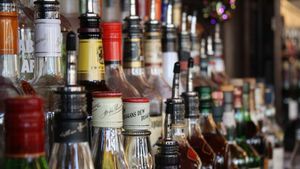SURABAYA - Member of Commission B (economy) DPRD East Java, Ahmad Athoillah, urged the Governor of East Java Khofifah Indar Parawansa to refuse the import of 3 million tons of salt. This statement responds to the government's plan to import salt into Indonesia.
"We ask the Governor to reject the salt import plan. Poor local salt farmers, it may not be absorbed," said Mas Atho, his nickname, confirmed on Monday, March 29.
Mas Atho 'regrets the government's attitude that often makes imports as a solution to meet salt needs. The government should have made efforts to increase production and maximize local salt absorption, he said. "So that in the future there is no continual dependence on imported salt. It is not just making imports as a solution," he explained.
According to him, the government must make efforts so that the people's salt absorption can be maximized. For example, by providing facilities for salt farmers, so that their production increases and has quality.
"The government is obliged to facilitate farmers to maximize salt production, so that in the future there is no longer dependence on imports," said the politician from Jombang.
The same statement was made by the Chairman of the Association of Salt Farmers (HMPG) East Java, M. Hasan, who encouraged the government to absorb the people's salt. This is because, Hasan said, the national salt stock that has not been absorbed by the market or industry has reached 1.2 million tons, the result of which is production from 2019-2020.
"If imports are carried out, then we can be sure that local salt is not absorbed. If there is minimal absorption, the price of salt will also drop. The government should have intervened first in the absorption of people's salt, set a reasonable price, and monitored stocks," Hasan explained.
Of the 1.2 million tonnes, Hasan continued, the stock of salt in East Java reached 600,000 tonnes. According to him, the salt import quota from year to year continues to increase. Meanwhile, the price for people's salt is currently in the range of Rp. 300 - Rp. 350 per KG at the farmer level.
"The price is far from previous years, which could be above Rp. 1,000 per KG. This policy has definitely made salt farmers and the government failed to do the salt self-sufficiency target," he said.
According to Hasan, HMPG has guaranteed that the quality of salt will increase with geo-membrane technology and must be at a Farmers' Basic Price (HPP) of Rp. However, he said, it was never realized and it resulted in the number of salt farmers decreasing.
Until now, Hasan continued, there are about 10 to 15 percent of the total national salt land area which reaches 26,000 hectares. Meanwhile, in East Java, 11,000 hectares of land are no longer in production. As a result, national salt production decreased due to weather, reaching 1.7 million tons, and specifically for East Java 900,000 tons in 2020.
"It is possible that the production will increase to 3 million tonnes nationally if this year the weather is good. In East Java the projection could reach around 1.2 million tonnes," Hasan said.
The English, Chinese, Japanese, Arabic, and French versions are automatically generated by the AI. So there may still be inaccuracies in translating, please always see Indonesian as our main language. (system supported by DigitalSiber.id)













